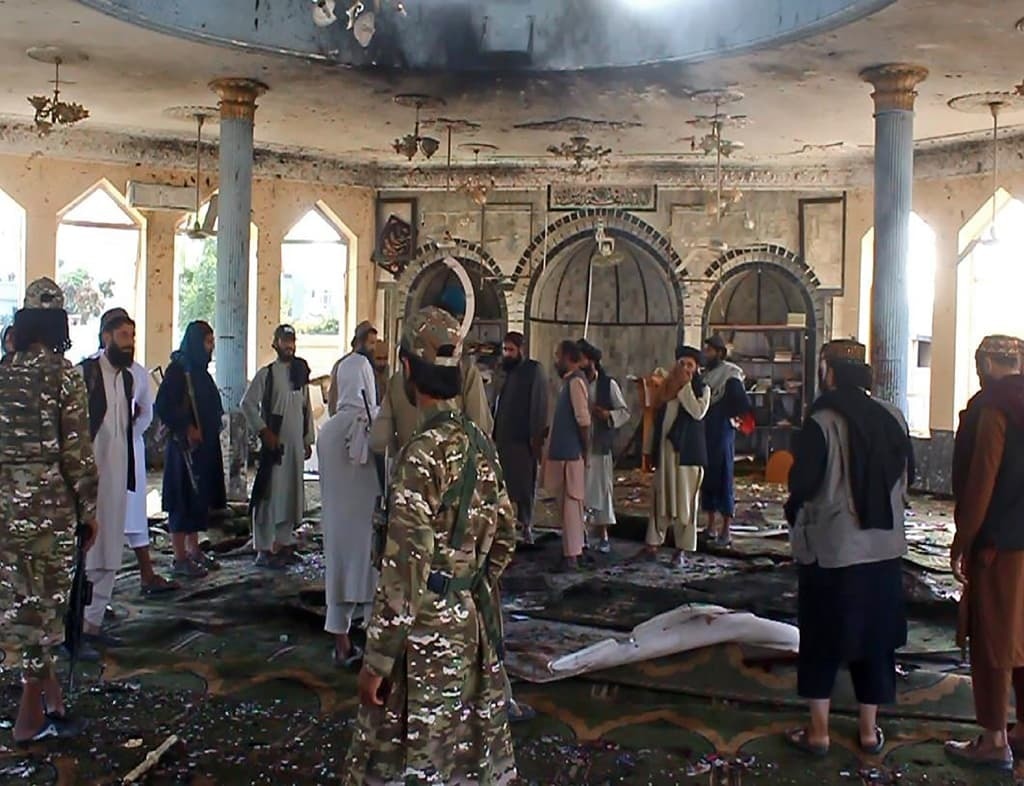EDITORIAL: The Afghan capital, Kabul, continues to suffer bomb blasts by terrorists that have rocked the country during the holy month of Ramazan. Taliban may have restored peace somewhat to their war-devastated country, but they have failed to defeat the IS-K, a local franchise of the international jihadist terrorist organisation Islamic State/Daesh, which is insistent on imposing its brutal ‘Takfiri’ agenda on the populace.
Last Friday and a week before that a string of attacks ripped the country with terrorists targeting a school and two mosques, one of them in a Shia neighbourhood. On Friday 29th April more than 50 people lost their lives in an explosion in Khalifa Sahi mosque in the west of the city and then on Thursday, a week earlier 16 people were killed in two separate attacks, one in Mazar-e-Sharif, which left 12 people dead and 58 wounded at a Shia mosque, and the other in the northern city of Kunduz where at least four people were killed and another 18 others wounded when a bicycle bomb exploded next to a vehicle carrying mechanics working for the Taliban.
The IS claimed credit for the carnage in Mazar-e-Sharif, saying “the soldiers of the caliphate managed to get a booby-trapped back inside the mosque, detonating it from afar.” Before that on Tuesday, 25 children were wounded in a deadly attack on a boy’s school in Kabul. There is a long list of their crimes committed over the recent years, including the three bomb explosion near a girls’ school in the Shia-dominated Dasht-i-Barchi area of Kabul that claimed 85 lives, many of girls’ students, and wounded 300 people.
While the IS-K terrorists are openly hostile towards the Shias, particularly members of the Hazara community as they are easily identifiable from their facial features, but even the followers of the mystical Sufi belief are not spared. Last Friday, a bomb ripped through the Sunni Mawlavi Sikandar Mosque in Kunduz city, popular with Sufis, killing 33 people, including children, and wounding 43 others. IS-K claimed responsibility for the appalling atrocity.
The group has been targeting Shias inside Pakistan as well. Last March, a suicide bomber, the police said, came from Afghanistan. That suicide bomber killed 64 people at a Shia mosque in Peshawar and injured dozens of others, many of them critically.
It has also been carrying out acts of terrorism in Baluchistan. But ensconced in Afghanistan the Tehrik-e-Taliban Pakistan (TTP) terrorists, aside from launching cross-border attacks against Pakistani security forces deployed along the border, have been deeply involved in sectarian violence. As a matter of fact, various extremist groups are similar to each other in pursuing a narrow sectarian agenda.
Though fundamentalist in religious orientation, the Afghan Taliban had only wanted to free their country from foreign forces; the IS, on the other hand, seeks establishment of an Islamic caliphate stretching from the Middle East to Pakistan, and beyond.
Hence, it is not only a clear and present danger to Afghanistan, but this entire region, including Central Asian States. It is also believed to be closely linked with militant groups causing trouble in the Chinese province of Xinjiang.
A major reason the international community is reluctant to accord diplomatic recognition to the Taliban government is the presence of extremist groups in that country. Its leadership, therefore, would be well-advised to take a regional approach in dealing with the challenge it faces from the IS-K and others of its ilk.
Copyright Business Recorder, 2022























Comments
Comments are closed.